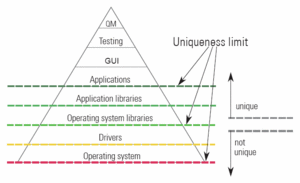Limiting Open Source

Once an unrestricted forum for harnessing the creativity and inventiveness of software developers worldwide, open source technology has started to become entangled in concerns over licensing, intellectual property laws, and perhaps unsurprisingly, taste. The innovative nature of open source has made it a valuable resource for major companies. However, these same companies, including Apple Computer and Google, have begun to place caps on what can and can't be developed on their platforms through outright rejection or licensing agreements. The limits of open source have begun to acquire definition; however, without these limits, it is arguable that open source development would not thrive without the support made possible by international platforms.

Apple has received a tremendous amount of press for its decisions to limit content displayed through the open source 'apps' developed for its iPhone and other display devices. Of course, Apple has a long history of exacting tight control over both its software and hardware; open source developers have always had to submit to Apple's thorough regulations and licensing agreements. Now that Apple has become such a significant distributor of content, any rejection or alteration has international repercussions. Both the apps developed to display the graphically illustrated version of James Joyce's "Ulysses" and the works of political and Pulitzer Prize winning cartoonist Mark Fiore were either subject to edits or complete rejection by Apple. In the case of "Ulysses," the authors of the graphic adaptation agreed to delete the offending panels, which tended to feature nudity or other sexual content that subjected the book to an obscenity trial in 1933. The judge ruled that the book was not obscene, making Apple's decision to limit the display one based more on matters of taste as opposed to legality. After Mark Fiore won the Pulitzer for his work, Apple encouraged him to resubmit his previously rejected app. His app was approved, and his cartoons are now available through the iPhone without edits.

Google's development project Android invites both individual and corporate developers to contribute to their platform as long as they first complete an intellectual property licensing agreement. These agreements specifically delineate the use of the open source code or applications generated by the developer in relationship to the larger platform, and allow the developer to use the technology for other purposes outside of Android. The mission of Android, as stated on its website, is to prevent any one company or source from controlling what content is displayed to users on mobile devices. Although Android has on the surface a far more open policy toward open source development than Apple does, the test is how open Android will remain; will it eventually become another Apple, or will it uphold its open-ended spirit?

No comments:
Post a Comment